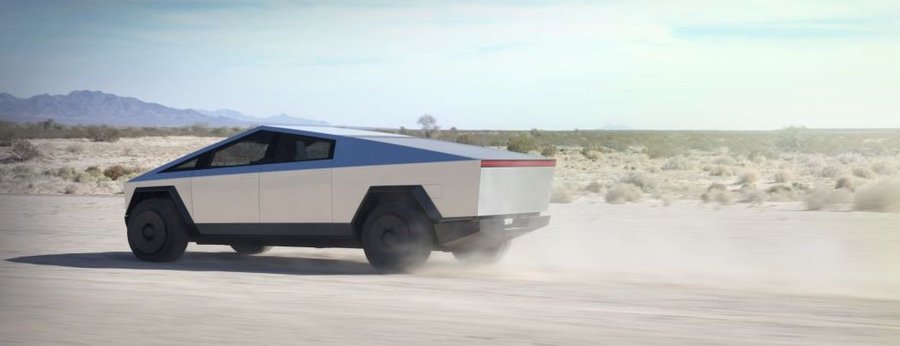Cybertruck legal to drive on Mars; in Germany, maybe not so much

Elon Musk's aspirations for the Tesla Cybertruck point to Mars. Based on comments from a German technical inspector, it appears the stainless wedge will be more welcome on another planet than in Germany and Europe. Stefan Teller is an expert with the SGS-TÜV Saarland in Germany, a Swiss-German conglomerate that performs technical inspection and certification for various industries throughout the world. In the automotive realm in Germany, for instance, vehicle owners must visit the TUV or similar body every two years for a roadworthiness inspection. As reported by Automobilwoche via Der Spiegel and Muscle Cars & Trucks, Teller said that based on what he knows of the Cybertruck, it wouldn't receive type approval for a mass-produced vehicle, and couldn't be sold in Germany.
The problem is the "nearly impenetrable exoskeleton" made of ultra-hard 30X cold-rolled stainless steel that gives the Cybertruck its shape, sheen, and sledgehammer-defying strength. Teller said the super-hard bodywork "contradicts the common European security philosophy" concerning vehicle occupants and pedestrians. He believes the toughened shell endangers passengers because, in an accident, "There are enormous forces acting on the occupants" such that "airbags no longer help there either." We haven't seen a Cybertruck in a crash test, so we don't know if or how Tesla's addressed this concern, but Teller believes, "The occupants feel safe, but they are not."
The expert thinks pedestrians will take hard knocks as well, which is a huge no-no on The Continent. National regulations over there demand that "The front of the vehicle must not be stiff," and, "The bumper and bonnet must be able to absorb energy to protect the pedestrians." If a sledgehammer swing won't leave a dent in the Cybertruck's bodywork, pedestrians and cyclists will get bounced off the pickup like squash balls.
Teller said the only way to German approval would be "strong modifications to the basic structure." As others have pointed out, Tesla could try going the route of certification as a specialized armored vehicle, but European regulators would likely see that as the end-around it would be.
When Autoblog spoke to researchers at the Insurance Institute for Highway Safety about the newest Tesla, they noted some of the differences between American and European regulations such as our lack of pedestrian impact rules. They also said it's too early to tell how the truck will fare in a crash test.
All we can be reasonably sure of is that whenever Tesla gets its Berlin-based factory running, the 500,000-unit annual production goal won't include any Cybertrucks. However, and perhaps most important in all of this, Musk hasn't said a word about any desire to sell the Cybertruck Europe, anyway. If Tesla's silverfish gets classified as a medium-duty workhorse to boot, we think there's even less chance it will tour Saxony and the Saarland as a regular production vehicle.
Related News


